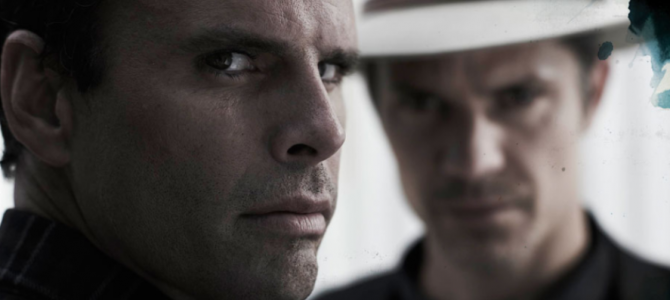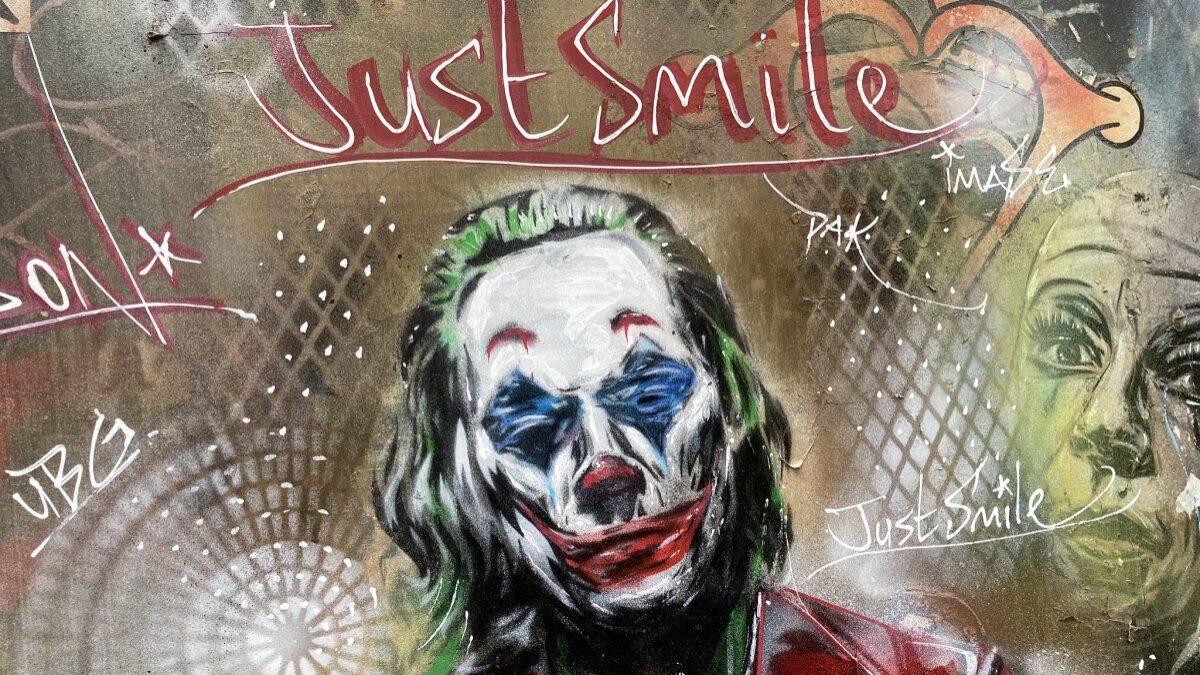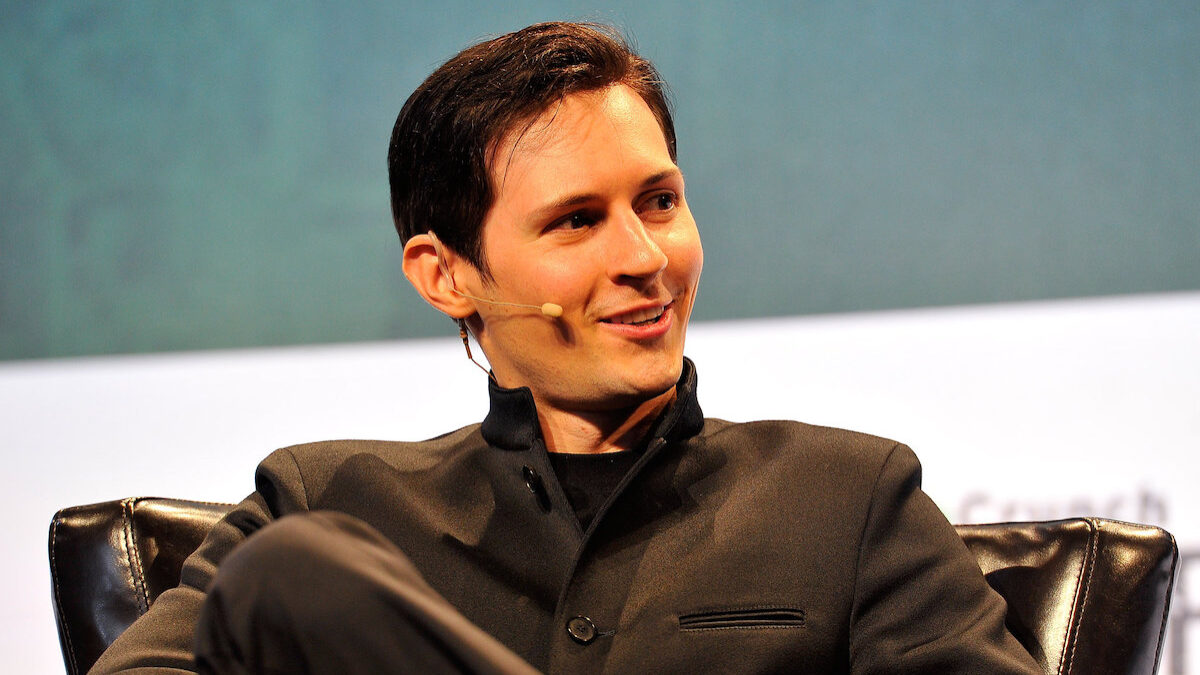
A man’s gotta do what a man’s gotta do. So says John Wayne, and his dictum is at the heart of the genre he embodied: the Western.
Don’t make the mistake of thinking he’s merely stating the obvious. The quote is phrased like a tautology, which is the little joke. But to capture his full meaning, you have to understand “man” in different senses. A man’s gotta do what a man’s gotta do. A real man. An honorable man. It should inspire the obvious follow-up question: what does a man gotta do?
The Western and American Manhood
For Americans, the Western has always stood as kind of fable about the moral genealogy of our civilization. In the Old West, we can return to pre-civilization and write a uniquely American origin story, “discovering” the virtues and commitments that have made us a great nation. Out on the frontier and without the support of modern institutions, basic requirements of survival regularly conflicted with more elevated goods like justice, honor, and loyalty.
In such a crucible, true character would out. Some buckled under the pressure, while others seized the opportunity to victimize the weak with impunity. John Wayne and his cohorts won the love of audiences by shouldering the burdens of honorable manhood, often in the face of danger and without expected reward. As viewers clearly understood, these were American men, setting a kind of paradigm for what American manhood ought to mean.
Contemporary liberals would sneer, but our modern society could do with a little more “Old West.” Of course, not everything about the Western was good. There were some amusing gender caricatures, and many violations on the “cultural sensitivity” meter. (Okay, so that’s probably a mixed blessing.)
Even so, the Western contains some valuable lessons for an age in which men are very apt to complain it’s too hard nowadays to aspire to honorable manhood. They explain that the deck is stacked against them, or that they aren’t offered sufficient reward for embracing manliness. Let’s revisit John Wayne. He might remind us that manhood has always been hard, and not something one seeks for the sake of plaudits or material gain.
I know. It’s complicated. There are many reasons for manhood’s decline. Some of it, certainly, can be justly blamed on women. (But that’s the last I’m going to say about that, because women aren’t the subject of this column.) Some reflects a soft, over-pampered culture that makes us think everything should be easy, including manhood.
Personally, I have a sneaking suspicion that much of this man-whining also has roots in The Golden Age of American Family, by which of course I mean the 1950s. Having fought World War II, the men of that era were no doubt quite manly, but they engineered social and political structures that were meant to ensure that every man could have secure employment, of a sort that could support his admiring family, with periodic raises and lifetime benefits. In some ways this arrangement was very good, but it wasn’t sustainable, and the paradigms it created gave rise to a sometimes-pernicious sense of manly entitlement. Many men today still seem to think society owes them a steady job, aproned wife and smiling children. Without these “rewards,” manhood is neither possible, nor a reasonable expectation.
Would John Wayne agree? His characters were not handed a nine-to-five, lifetime-benefit jobs, but they still aspired to something more than comfort, sex, and three squares a day. Is manhood really so much harder now than in days of yore? Or are we just not willing to try anymore?
‘Justified,’ The Western Redux
It’s interesting to consider these questions in light of modern remakes of the Western, such as we see in the hit FX series “Justified.” Although set in the modern era, “Justified” obviously represents a self-conscious effort to recapture the older genre. Harlan, Kentucky is a kind of new Old West, overrun with outlaws and in need of a procedure-skirting Marshal to restore order. Both The Marshall (Raylan Givens, played by Timothy Olyphant) and The Outlaw (Boyd Crowder, played by Walton Goggins) manifest a purpose and intensity that seems weirdly out of step with our decadent modern society. The cast of characters includes a variety of villains and law-enforcement representatives, but somehow Raylan and Boyd are always the two centers of gravity. Harlan is their world, and in that world, the perpetual struggle is to be justified: to discern and do what a man’s gotta do.
In this sense, “Justified” successfully captures the Western genre. It recreates that Old-West sense of seeking rightness amidst chaos, forcing characters to rely on their own wits and sense of honor. This sense of necessity is part of what makes the series compelling. At the same time, “Justified” remains a modern Western. It’s infused with far more moral ambiguity than John Wayne typically faced. The low-life of Harlan exemplify a type of sleaze and demoralization that’s more characteristic of our time than Butch Cassidy’s, and even among the principals, it’s intriguingly difficult at times to judge which is the better man.
Givens, as the handsome Marshal, is the most obvious hero. Onscreen he has a way with the ladies, but offscreen it may be the gentlemen who admire him most, even if he is (as Wendy Crowe remarks in season five) “easy on the eyes.” He’s the quintessential sigma male: confident, capable, and the fastest draw in the New Old West. Although himself the son of a small-time crook, he sides with the good guys, though not in a fashion that his bosses always approve. He skirts procedure with some regularity, but at the same time, you’d never suspect him of walking off with the shipment of heroin. Justice, not money, is his passion. He also has a soft spot for the damsel in distress. It goes without saying that he has nerves of steel and reliably gets the job done.
Is Givens the sort of man you want to see at the end of the aisle, waiting for your white-clad daughter? Hmmm. As a family man, he leaves much to be desired, allowing his (ex)-wife (with whom he was briefly reunited in season two, just long enough to conceive a child) to raise their daughter alone while he plays cop-and-robber. His family has a nice stack of IOUs by now, and it will be interesting to see whether he makes good on them when the series concludes six episodes from now.
Fidelity is clearly seen as optional. Skanky women admire Givens, and he sometimes returns the favor (at least for a night or two). Interestingly, his criminal rival is far more admirable in this regard. Boyd has been devoted to one woman for several seasons now (enough to kill for her, literally). When Ava, his lady, requested that he stay away from prostitutes, he laughed and assured her that he’d had no interest in that sort of woman since he was 13. And you believe him. Boyd’s devotion even inspires dreams of respectability, which bubble up periodically when he glimpses opportunities to “go straight” without sacrificing his status (which the viewer implicitly respects) as one of Harlan’s most important men. When he proposes to Ava, Boyd assures her that in their grandchildren’s day, “Crowder” will no longer be a disreputable name.
If Givens has any such longings, he doesn’t mention them. He’s a badass, but he’s neither far-sighted nor long-suffering. His appetites are not disciplined. And it’s hard to tell sometimes where, precisely, his love of justice meets his fascination with violence and danger.
John Wayne or James Bond?
Nobody’s perfect, right? But it’s particularly interesting to find these sorts of deficiencies walking around in boots and a cowboy hat.
The traditional Western celebrated a kind of man that has mostly gone by the wayside in modern entertainment. He was tough, certainly, but also reliable. He was more likely to be strong and silent than slick and snarky. He didn’t have “authority issues” or “commitment issues.” (Just in general, he was pretty light on “issues.”) He didn’t shy away from violence, but you also didn’t get the impression he was addicted to it.
Since those days, a new kind of manly archetype has arisen, perhaps best exemplified by a hero like James Bond. He’s handsome, of course. Slick and competent. Brimming with confidence. Laughs in the face of danger. But James Bond isn’t what we’d call “husband material.” He expects his manly duties to be glamorous, and his romances steamy and short. You can’t really picture him in a bathrobe and slippers, unless possibly with a martini glass in one hand and a hot blonde beckoning from the bedroom.
What happens when little boys grow up enamored of this manly stereotype? How does it shape their expectation of what manhood entails?
The Western model recommends commitment to virtue without guarantee of reward. Bond prefers things the other way: glamor, adventure, and (amply rewarded) sex appeal define his character, but commitment is far more tenuous. As heroes in this mold become more expected than exceptional, their boyish admirers naturally conclude that “long-suffering” is for chumps, while true manly excellence (as manifest in sex appeal, but also a kind of competence and daring) merits the sort of reward that lends itself to easy and pleasurable consumption. Actors and athletes can be admired despite (or because of?) legions of illegitimate children, while good family men are more likely portrayed onscreen as bumbling beta-males who rely on their wives to wear the pants. We don’t get many middle figures, whose masculinity is actually manifest through the honorable fulfillment of more ordinary obligations to family and community and (dare I say it!) God.
Is Raylan Givens part of the problem, or a step towards a possible solution? Again, it will be interesting to see how the series ends. When our cowboy rides off into the sunset, what will be his destination? And what will be the final lesson of Boyd Crowder’s morally-ambiguous saga? The answers to these questions could cement the series’ legacy as a brilliant renewal of a classic genre, or they might just leave us puzzled and disappointed.
In a broader sense, the renewed popularity of the Western could be a promising development. It gives us a real chance to revisit classic themes that are as relevant as ever, and more pressing in our time than they were for our grandparents. But the new Western won’t help us if it merely re-clothes modern themes in throwback costumes. Let’s hope “Justified” ends up delivering something more.









